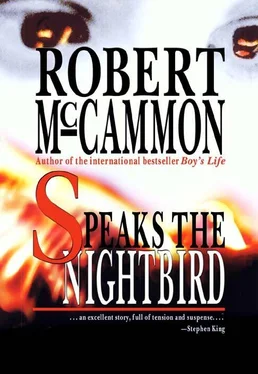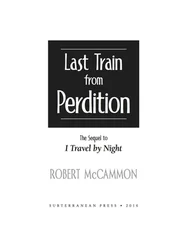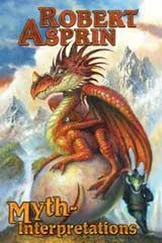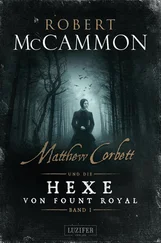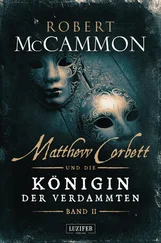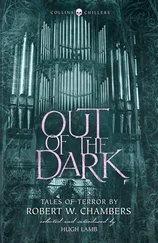"Two-thirds?" said the man at the window, without turning away from the view. His wig, a majesty of white curls, flowed down around the shoulders of his dark blue, brass-buttoned suit. He wore white ruffles at his sleeves, white stockings on his thick calves, and polished black shoes with silver buckles.
"Yes, sir. The same is true of the plum trees, and about half of the pears. At present the blackcherries have been spared, but it is Goode's opinion that a parasite of some kind may have laid eggs in all the fruit trees. The pecans and the chestnuts are so far unblemished, but the fields have been washed to the extent that many of their roots are now aboveground and vulnerable to harm." The speaker halted in his recitation of agricultural maladies and pushed his spectacles up a little further on his nose. He was a man of medium height and stature, also of medium age and appearance. He had light brown hair, a lofty forehead, and pale blue eyes, and he bore the air of a wearied accountant. His clothes, in contrast to the other man's finery, consisted of a plain white shirt, brown cloth waistcoat, and tan trousers.
"Continue, Edward," the man at the window urged quietly. "I am up to the hearing."
"Yes, sir." The speaker, Edward Winston, returned his attention to the items quilled in the ledgerbook. "Goode has made a suggestion regarding the fruit trees that he felt important for me to pass to you." Again, he paused.
"And that suggestion is?"
Winston lifted his hand and slowly ran two fingers across his mouth before he went on. The man at the window waited, his broad back held straight and rigid. Winston said, "Goode suggests they be burned."
"How many trees? Only those afflicted, yes?"
"No, sir. All."
There was a long silence. The man at the window pulled in his breath and let it slowly out, and when he did so his shoulders lost their square set and began to sag. "All," he repeated.
"Goode believes that burning is the only way to kill the parasite. He says it will do no good in the long run to destroy only the trees presently showing ill. Furthermore, he believes that the site of the fruit orchards should be moved and the earth itself cleansed with seawater and ashes."
The man at the window made a soft noise that had some pain in it. When he spoke, his voice was weak. "How many trees are to be burned, then?"
Winston consulted his ledger. "Eighty-four apple, fifty-two plum, seventy-eight blackcherry, forty-four pear."
"And so we start over yet again, is that it?"
"I fear it is, sir. As I always say, it's better to be safe than sorry."
"Damn," the man at the window whispered. He placed his hands on the sill and stared down through red-rimmed hazel eyes at his endangered dream and creation. "Is she cursing us, Edward?"
"I don't know, sir," answered Winston, in all candor.
Robert Bidwell, the man at the window, was forty-seven years old and scarred with the marks of suffering. His deeply lined face was strained, his forehead furrowed, more lines bracketing his thin-lipped mouth and cutting across his chin. Many of those markings had afflicted him in the past five years, since the day he had been presented with official papers deeding him 990 acres on the coast of the Carolina colony. But this was his dream, and there before him, under the ochre sunlight that slanted through the ominously building clouds, lay his creation.
He'd christened it Fount Royal. The reason for the name was twofold: one, to thank King William and Queen Mary for their fount of faith in his abilities as a leader and manager; and two, as a geographic waypoint for future commerce. Some sixty yards from the front gate of Bidwell's house-which was the sole two-story structure in the community-was the fount itself: an oblong-shaped spring of fresh, cold aquamarine-colored water that covered an expanse of nearly three acres. Bidwell had learned from a surveyor who'd been mapping the area several years ago and who'd also plumbed the spring that it was more than forty feet deep. The fount was of vital importance to the settlement; in this country of salt marshes and stagnant black ponds, the spring meant that fresh water would always be in abundance.
Bulrushes grew in the spring's shallows, and hardy wildflowers that had endured the intemperate chill grew in clumps on the grassy banks. As the spring was the center of Fount Royal, all streets-their muddy surfaces made firmer by sand and crushed oyster shells-radiated from it. The streets were four in number, and had been named by Bidwell: Truth ran to the east, Industry to the west, Harmony to the north, and Peace to the south. Along those streets were the whitewashed clapboard houses, red barns, fenced pastures, lean-to sheds, and workshops that made up the settlement.
The blacksmith toiled at his furnace on Industry Street; on Truth Street stood the schoolhouse, across from the general store; Harmony Street was host to three churchhouses: Anglican, Lutheran, and Presbyterian; the cemetery on Harmony Street was not large, but was unfortunately well-planted; Peace Street led past the slave quarters and Bidwell's own stable to the forest that stood just short of the tidewater swamp and beyond that the sea; Industry Street continued to the orchards and farmland where Bidwell hoped someday to see bounties of apples, pears, cotton, corn, beans, and tobacco; on Truth Street also stood the gaol, where she was kept, and near it the building that served as a meeting-house; the surgeon-barber was located on Harmony Street, next to Van Gundy's Publick Tavern; and a number of other small enterprises, scattered about the fledgling town in hopes that Bidwell's dream of a southernmost city might come to fruition.
Of the 990 acres Bidwell had purchased, little more than two hundred were actually built upon, tilled, or used as pasture. A wall made of logs, their uptilted ends shaved and honed by axes into sharpened points, had been constructed around the entire settlement, orchards and all, as protection against Indians. The only way in or out-notwithstanding the seacoast, though a watchtower built in the forest there was occupied day and night by a musket-armed militiaman-was through the main gate that opened onto Harmony Street. A watchtower also stood beside the gate, allowing its militiaman a view of anyone approaching on the road.
So far in the existence of Fount Royal, the Indian element had offered no trouble; in fact, they'd been invisible, and Bidwell might have questioned whether there were indeed redskins within a hundred miles, if Solomon Stiles hadn't discovered strange symbols painted on the trunk of a pinetree during a hunting expedition. Stiles, a trapper and hunter of some regard, had explained to Bidwell that the Indians were marking the wilderness beyond the tree as territory not to be trespassed upon. Bid-well had decided not to press the issue, though by the royal deed all that land belonged to him. No, best to let the redskins alone until it was time to smoke them out.
Looking down upon the current decrepit condition of his dream hurt Bidwell's eyes. There were too many empty houses, too many gardens gone to weed, too many broken fences. Un-tended pigs lay about in the muck and dogs wandered, snapping and surly. In the past month five hard-built structures-all deserted at the time-had been reduced to piles of ash by midnight fires, and a burnt smell still tainted the air. Bidwell was aware of whom the residents blamed for these fires. If not her hand directly, then the hands-or claws, as the case might be-of the infernal beasts and imps she invoked. Fire was their language, and they were making their statements very clear.
His dream was dying. She was killing it. Though the bars of her cell and the thick walls of the gaol confined her body, her spirit-her phantasm-escaped to dance and cavort with her unholy lover, to plot more wreckage and woe to Bidwell's dream. To banish such a hydra into the judgment of the wilderness was not enough; she had plainly said she would not go, that no power on earth could make her leave her home. If Bidwell hadn't been a lawful man, he might have had her hanged at the beginning and been done with it. Now it was a matter for the court, and God help the judge who must sit in attendance.
Читать дальше
